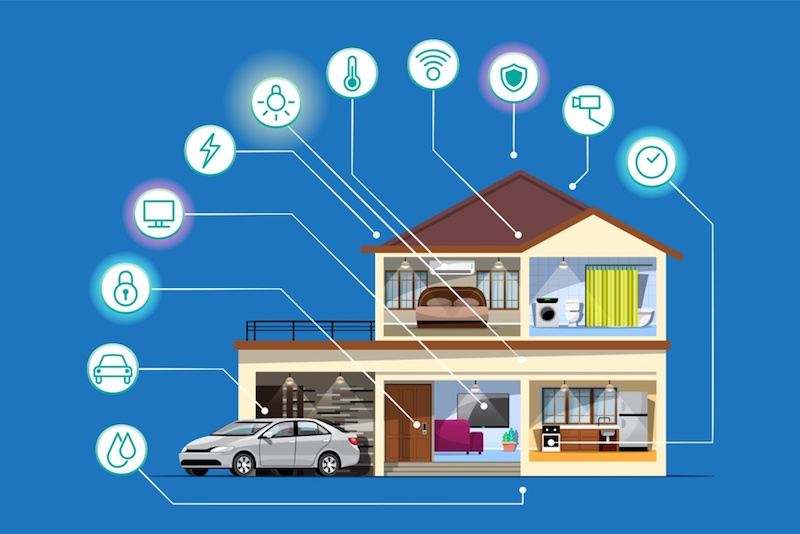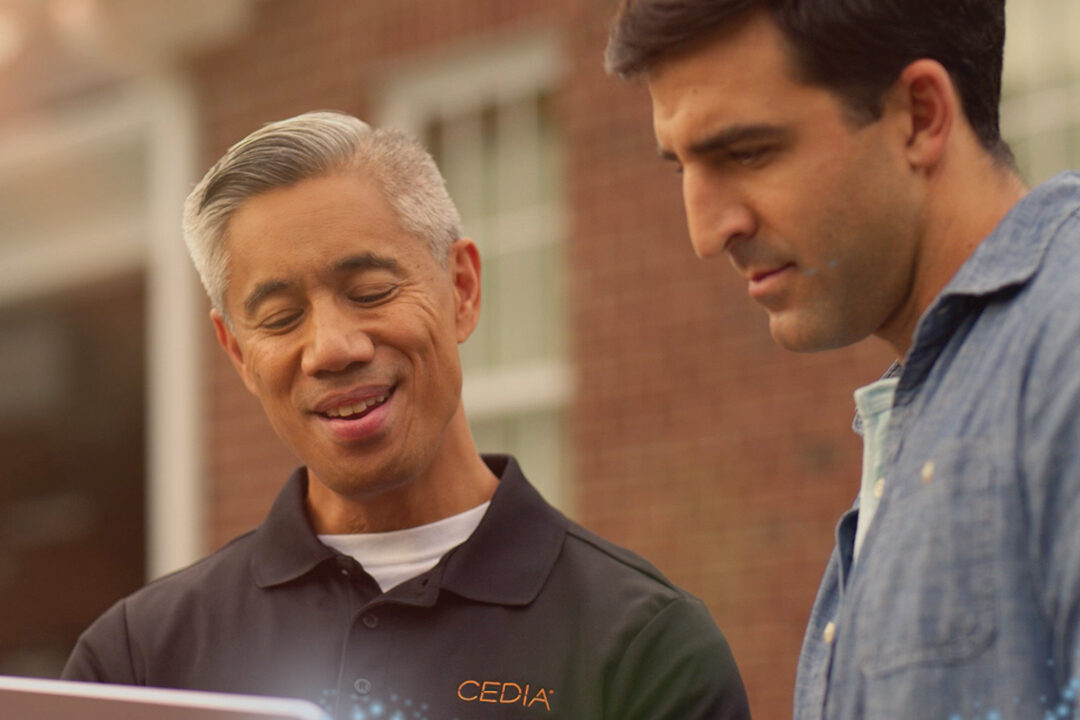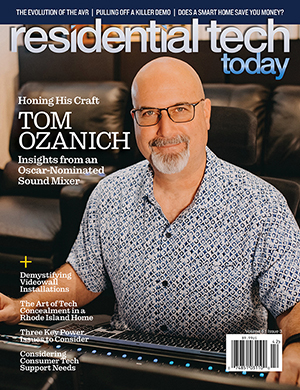A smart home integrates internet-connected devices for remote monitoring and control of household systems. This means that with a smart house, you enjoy the luxury of being able to control systems like lighting and even heating without having to be inside the house.
Also known as domotics or home automation, smart houses do not only offer security but also comfort and energy efficiency. Essentially, all you need is a networked device or maybe a smartphone app to manage all your smart devices.
For those who have switched to smart homes, one of the benefits that gets the most mentions is the enhanced convenience of being able to control your thermostat or turn off lights remotely. What’s more, with cameras for monitoring and smart locks etc, smart homes offer enhanced security.
And considering the fact that smart houses can automate actions based on preferences to boost efficiency and reduce utility bills, they’re one of the most embraced tech advancements internationally. This is a big plus for any professional looking for jobs for a technician abroad on Jooble and similar platforms. We created this article for you if you’re contemplating making the switch to a smart house.
What is Required for a Smart Home?
If you’ve been keeping tabs on trends, you must have noted that connected homes are quickly becoming the norm. In fact, Statista estimates that by 2025, there will be an upwards of 470 million smart homes globally. But for your smart house to function, there are a few essentials you will need to get right. Here’s what is required for a smart home;
A reliable internet connection: This is key. A reliable internet connection facilitates the communication between devices and your home’s control hub. Alongside this, a Wi-Fi router is necessary. For larger homes or numerous connected gadgets, you may need a mesh router to ensure consistent connectivity throughout the space.
Smart devices: The heart of a smart home lies in its smart devices. These run the gamut from light bulbs, to locks, thermostats, speakers, and security cameras — that operate within the interconnected system. These gadgets are controlled and programmed through a dedicated smart home app or platform. This platform acts as your command center. It is what you use to customize settings and manage devices conveniently.
Control mechanisms: These vary, from smartphones and tablets to voice-controlled smart speakers like Amazon Echo or Google Home. These gadgets offer seamless interaction and enable homeowners to command their smart devices with utmost ease.
What You Need to Know Before Buying a Smart House
According to smart home engineers that we connected with via Jooble, a smart house does not only modernize living but also offers remote control over devices and reduces utility cost. And, some smart homes often appreciate in value, something which makes them not just a huge but also a forward-thinking investment. If you’re thinking of buying a smart home, here are five things you will want to know beforehand:
The Cost
Smart home devices can be pricey and this is especially true when installing multiple devices. Consider the overall investment, including device costs, installation, and maintenance.
Assess if the convenience, energy efficiency, and potential resale value justify the expense. Evaluating these aspects will help you make an informed decision.
And even though the initial cost might seem high, weigh it against long-term benefits like reduced utility bills and increased home value. Also, maintenance costs should factor into your budget.
Preferences
Every person has their own preferences and understanding your own is crucial before splashing cash on a smart house. Knowing your preferences before making a purchase will ensure that you purchase a smart home with the right technology that suits your lifestyle.
This is relatable considering that some systems may be complex and be demanding of technical expertise. So, check to ensure that the home automation aligns with your comfort level.
It should also offer user-friendly interfaces to ensure easy control of devices. And since your preferences shape the type of smart home technology you require, assess your key needs to ensure that you select just the right features and functionalities.
Do you seek convenience, energy efficiency, or enhanced security? Those are the questions you may want to ask yourself when making the decision. Also, verify usability to ensure a smoother transition into managing your home to avoid frustration and maximize the benefits of a smart house tailored to your preferences.
Maintenance
Smart home devices require regular upkeep to ensure smooth operation. It involves software updates, battery replacements, and network connectivity checks.
Being proactive in maintenance preserves device functionality and security. So, be sure to know the maintenance needs of your smart home devices.
You will need this to be able to make informed decisions. Factor in the time and effort required or consider hiring a professional for upkeep.
The secret is being prepared for the responsibilities associated with maintaining a smart home. It will help you ensure a continued efficiency and convenience in enjoying its benefits.
Flexibility
Smart home tech evolves rapidly. And because of this, so many new devices are introduced on a regular basis.
With that in mind when buying a smart house, you will want to ensure that your system is flexible and scalable. This is vital as having a flexible and scalable system will allow for adding or upgrading devices depending on changing needs.
Also, keep in mind that unlike traditional homes, smart houses risk obsolescence if not regularly updated. With a flexible system, you can rest assured of ease of adaptability to advancements to preserve the home’s technological relevance.
Verify if the smart home system accommodates future upgrades. Consider compatibility with various devices and platforms. This flexibility ensures your home remains current despite the ever-evolving nature of smart technology.
Security level
Security is one of the key concerns for tech savvy smart house enthusiasts. It makes absolute sense nonetheless as understanding the security level is crucial before buying a smart house.
With the excessive reliance on technology, security breaches are possible even with the most sophisticated smart home technologies. So, you will want to ensure the security of all digital components, particularly when using IoT devices.
When purchasing a smart home, investigate the security protocols and features in place. Check to ensure that there is strong encryption, software updates are applied regularly, and authentication mechanisms are all functional.
In Closing
Purchasing a smart house is a significant investment so you will want to take your time to make the right decision. It would be best not to hurry the process to ensure that you get a home that meets all your unique needs.








